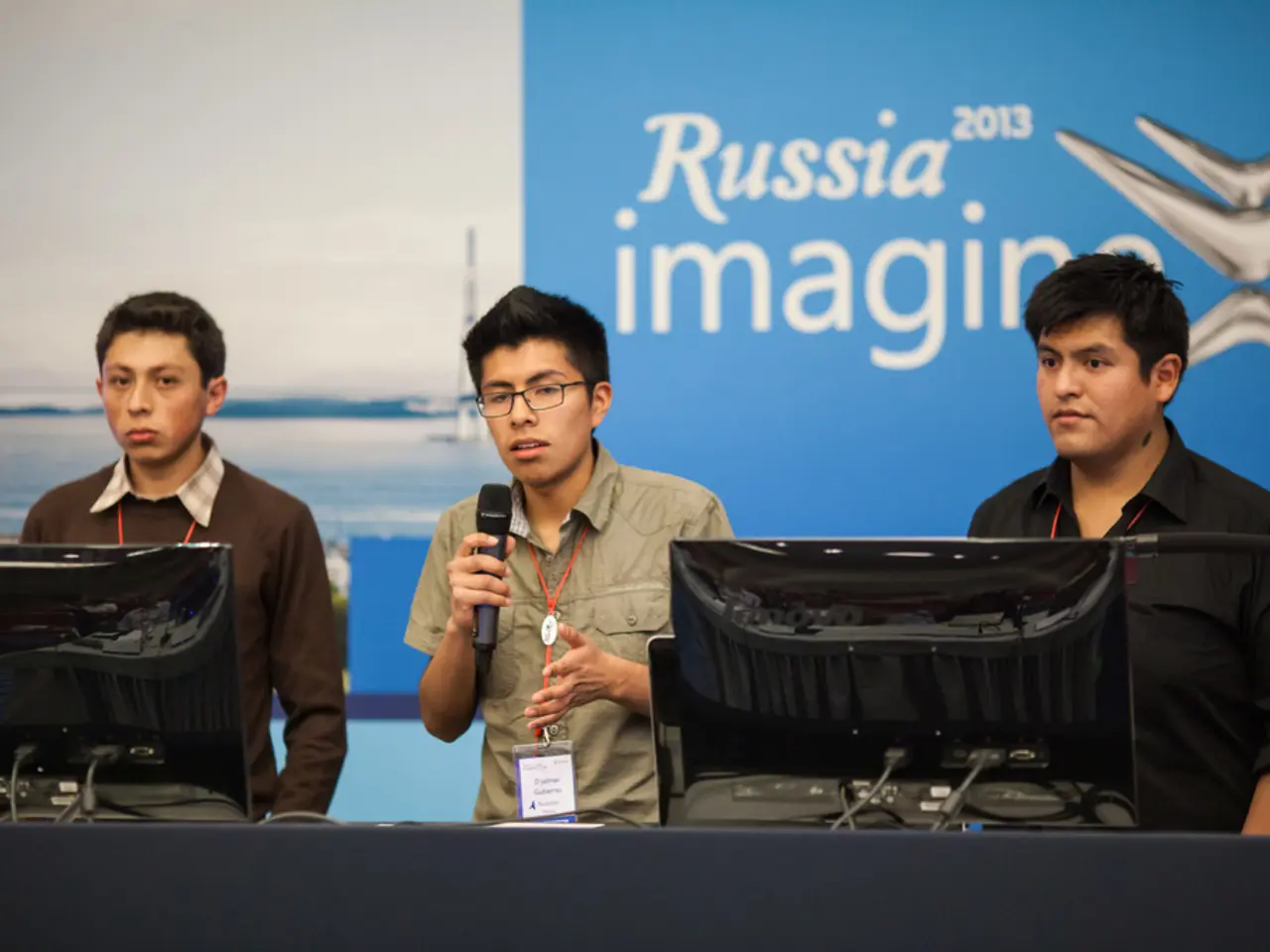Discussion between Trump and Putin centered around potential land concessions by Ukraine
In the ongoing Ukraine-Russia conflict, proposals for territorial concessions by Ukraine have become a contentious issue. The primary focus of these proposals is the ceding of full control of the Donbas region (comprising Donetsk and Luhansk) to Russia, along with freezing the front line in parts of the Kherson and Zaporizhzhia regions [1][2].
These proposals, reportedly backed by former U.S. President Donald Trump, have been met with firm rejection by Ukraine's leadership and population. Ukrainian President Volodymyr Zelenskyy has stated his allegiance to Ukraine's constitution, which regards these territories as integral parts of the country [1][3].
Russia's formal demands, as outlined by President Vladimir Putin, include Ukraine handing over all annexed provinces, becoming a neutral state, abandoning plans to join NATO, never developing nuclear weapons, respecting the rights of Russian-speaking populations, lifting sanctions against Russia, and undergoing "demilitarization and denazification" [3].
Ukrainian civil society and experts warn that forcing Kyiv to give up land would provoke strong internal backlash, potentially sparking widespread protests and civil unrest. Ukrainian public sentiment strongly opposes territorial concessions as a violation of national sovereignty and dignity [2].
Analysts emphasize that Ukrainians do not control any Russian territory, so "land swaps" as presented in discussions effectively mean Ukraine losing land it legally holds but Russia occupies by force. This diminishes the credibility or fairness of negotiation proposals [2].
As the conflict continues, the Ukrainian population, after three and a half years of constant Russian attacks, is war-weary. The southern Ukrainian regions of Zaporizhzhia and Kherson remain uncertain, with Russia having annexed but not fully controlling them [1].
A summit between Trump and Putin is scheduled to take place on August 15 in the northern US state of Alaska. Trump has hinted at the hurdles of the Ukrainian constitution as an obstacle to a solution, while Zelenskyy has criticized the choice of Alaska as the venue for the summit, stating that Ukraine should be involved in decisions affecting the war [1].
Despite Trump's ultimatum to Putin to stop the war, which has since expired, Trump has put pressure on Ukraine instead of Russia as the aggressor. Zelensky must hurry to organize political support in his country due to the impending deal [1].
Moscow has invited Trump for a second meeting in Russia, excluding Zelensky yet again. The future of Ukraine's territory and its relationship with Russia remains uncertain, with both parties seemingly far from reaching a mutually acceptable solution.
References: 1. Wall Street Journal 2. The Guardian 3. BBC News
- The Ukrainian President Volodymyr Zelenskyy, aligned with Ukraine's constitution, firmly rejects proposals for territorial concessions, particularly over the Donbas region, due to concerns about national sovereignty and dignity.
- Ukrainian analysts argue that any discussion of "land swaps" in the ongoing conflict is unfair, as Ukraine does not control any Russian territory and any such agreement would effectively mean Ukraine losing controlled land to Russia.







